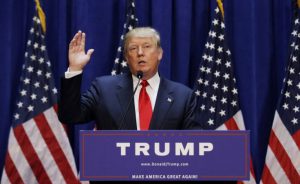US Election Update
Good work from the polling companies again!
Having read through a number of early research pieces this morning, the main thrust seems to be as follows in respect of the implications of a Trump presidency.
Republican control of the upper houses should permit most reasonable Trump policies getting through. Some of the more ‘controversial’ campaign statements such as banning Muslims etc. are likely to meet with resistance however!
Fiscal stimulus is now firmly on the agenda with infrastructure spending promoted and significant cuts in corporate and personal taxes (particularly for lower earners) expected. Regulation and red tape is also expected to be reduced. This could be good news for energy, financial and construction-related sectors (as will the wall going up on the Mexican border of course!!). Domestic focused retail and service companies may also be beneficiaries of higher consumer spending.
As flagged in the run up to the election, international trade deals and geo-politics are less of a priority for the Trump camp. Any resultant protectionist trade moves are a potential big negative for China and Emerging markets in general.
Equity market futures and the dollar have shown little reaction thus far, recovering from initial drops. Although a December rate hike seems to be off the agenda now, rate hikes could come through quicker in 2017 as fiscal stimulus measure kick in, particularly if inflation remains sticky. That is a negative for fixed-interest markets and viewed as a potential problem (again) for indebted emerging economies and regions such as Hong Kong, where property prices have quadrupled in the past decade partly as consequence of record low US borrowing rates.
Perhaps more importantly, the election result builds on the (surprise?) BREXIT vote to show that the mass population, left behind as a result of post credit crisis policy, is finally saying enough is enough. This could have serious implications for forthcoming elections in Europe next year and the risk that the election of anti-establishment/anti-Euro parties could destabilize the whole structure of the Eurozone project.
Politicians and central bankers should hopefully by now have got the message! It is likely that we could witness a policy switch from monetary to fiscal stimulus and it will be interesting to see which way the UK’s forthcoming Autumn Statement indicates the domestic direction of travel.

